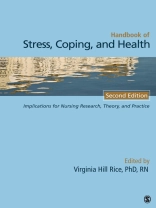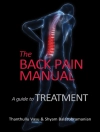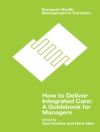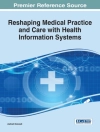Handbook of Stress, Coping, and Health
Implications for Nursing Research, Theory, and Practice, Second Edition
This unique and comprehensive handbook examines the various models of stress, coping, and health and their relevance for nursing and related health fields. Building on the first edition that has been highly praised for its analysis and critique of existing models and its discussion of new research surrounding self-regulation and stress, this Second Edition continues to provide a critical analysis of the field while providing up-to-date cutting-edge research. Under the expert editorship of Dr. Virginia Hill Rice, experienced scholars and practitioners present a broad range of issues and research that relate to stress and health, such as response-oriented stress; stimulus-oriented stress and transactional stress, coping, and health in children, adolescents, and attitudes.
Cuprins
Chapter 1: Stress, Coping and Health: A conceptual overview – Brenda Lyon
Chapter 2: Theories of Stress and Relationship to Health (Update) – Virginia Rice
Chapter 3: Stress, Immunity, and Health Outcomes – Linda Janusek, Dina Cooper, Herbert Mathews
Chapter 4: Epigenetics and Stress: A Life Course Perspective – Linda Janusek, Dina Cooper, Herbert Mathews
Chapter 5: Physiological Measurement(s) of the Stress Response – Jill Winters
Chapter 6: Major and Minor Life Stresses and Health Outcomes – Virginia Rice
Chapter 7: Stress and Behavior: Coping via Information Technology – Linda Weglicki, Neveen Awad
Chapter 8: Salutogenesis: ‘Origins of health′ and Sense of Coherence′ – Martha Horsburgh, Alana Ferguson
Chapter 9: Evolution of a Model of Stress, Coping, and Discrete Emotions – Virginia Rice
Chapter 10: Stress, Coping, and Health in Children – Nancy Ryan-Wenger, Vicki L. Wilson, Alexandra Broussard
Chapter 11: Stress, Coping & Adolescent Health – Carolyn Garcia, Jessie Pintor
Chapter 12: Stress and the Workplace: Theories and Models of Organizational Stress – Judith Cohen, Jill Tarule, Carol Vallett, Betty Rambur
Chapter 13: Personality Constructs as Mediators of Stress – Matthew Sorenson, Barbara Harris
Chapter 14: Social Support: The Promise and the reality – Patricia Underwood
Chapter 15: Psychosocial and Biological Stressors and the Pathogenesis of Cardiovascular Disease – Holli De Von, Karen Saban
Chapter 16: The Acute Myocardial Infarction Coping Model: A Midrange Theory – Elizabeth Roe, Alissa Chow-Firmage, Angelo Alonzo, Nancy Reynolds
Chapter 17: Quality of Life in relation to Stress and Coping – Anita Molzahn, Gail Low, Marilyn Plummer
Chapter 18: Hope and Hopelessness – Edith Raleigh
Chapter 19: Self-Regulation: The commonsense Model of Illness Representation – Nancy Reynolds, Faith Martin, Rose Nanyonga, Angelo Alonzo
Chapter 20: Stress, Self-Efficacy, and Health – Debra Siela, Ann W. Wieseke
Chapter 21: Stress, Uncertainty, and Health – Merle Mishel, Cecilia Baron
Chapter 22: Stress, Coping, Health and Nursing: The future – Virginia Rice, Brenda Lyon
Despre autor
Virginia Hill Rice, Ph D, RN, CS, FAAN is Professor of Nursing at the Wayne State University College of Nursing and Professor of Oncology at the Wayne State University College of Medicine and the Karmonos Cancer Institute. She received the Nightingale Award for Excellence in Nursing Research and Midwest Nursing Research Society’s Stress and Coping Research Section’s Advancement of Science in Stress and Coping Award. Dr. Rice is a fellow of the American Academy of Nursing.












